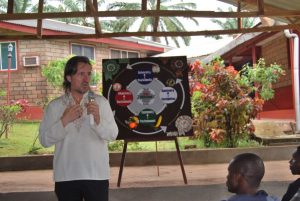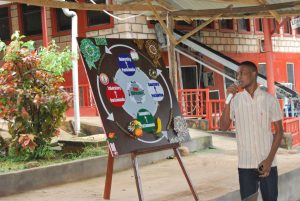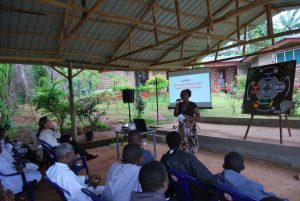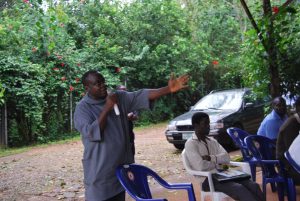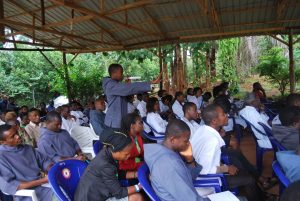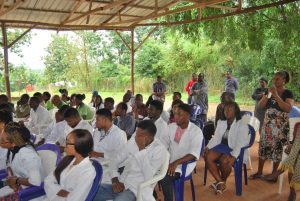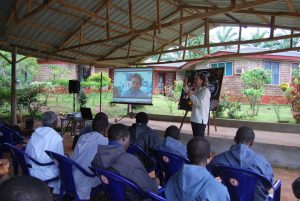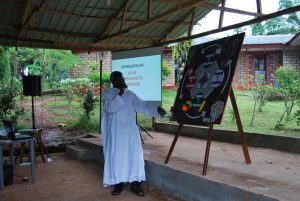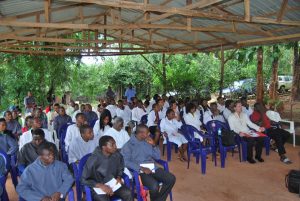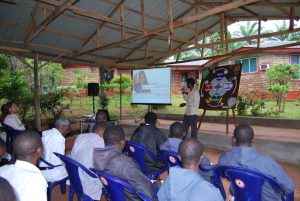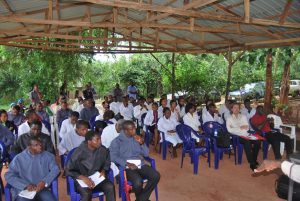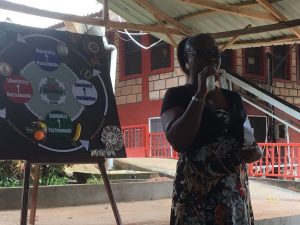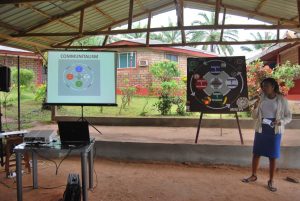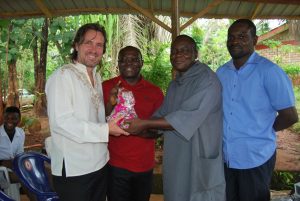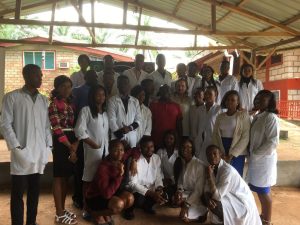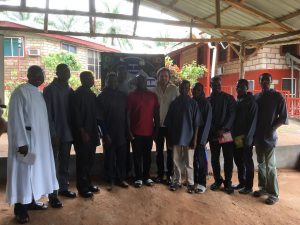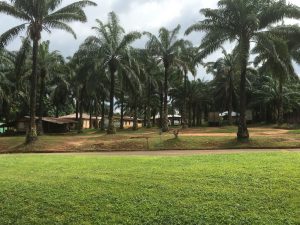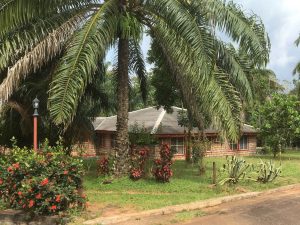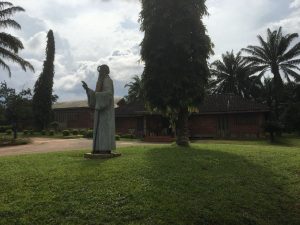12 October 2017: A short and vibrant workshop at Pax Herbals, Ewu, served to further the theory and practice of Communitalism, developed by Co-Founder of Pax Herbals Father Anselm Adodo.
Father Anselm Adodo, who is also a Trans4m Senior Fellow, invited Trans4m Co-Founder Alexander Schieffer to facilitate a workshop, with all four institutional constituencies that form part of the integral economic model of Communitalism present, jointly called Pax Africana:
- Pax Communis: represented by leading members of EDEMCS – the community association that drives Communitalism from the local village perspective
- Pax Spiritus: represented by 15 monks from the Ewu Benedictine Monastery
- Pax Scientia: represented by some 20 students who work within Pax Herbals, and are associated with the research institute embedded in Pax Herbals called OFIRDI (Ofure Integral Research and Development Initiative)
- Pax Economia: represented by about 25 staff members of Pax Herbals
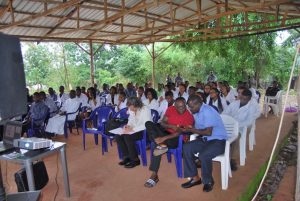 Through a number of short and lively presentations of various members of “the four Pax” constituencies, supported by active facilitation, participants surfaced a large number of “interconnections” and mutually supportive relationships between all four dimensions, as well as future development potential. It became apparent that the level of shared ownership of the theory and practice of Communitalism has strongly increased over the past two years – providing a springboard for further expansion.
Through a number of short and lively presentations of various members of “the four Pax” constituencies, supported by active facilitation, participants surfaced a large number of “interconnections” and mutually supportive relationships between all four dimensions, as well as future development potential. It became apparent that the level of shared ownership of the theory and practice of Communitalism has strongly increased over the past two years – providing a springboard for further expansion.
Schieffer then shared how the Pax Africana approach is influencing not only major development impulses in Nigeria (such as the Integral Banking and Communipreneurship initiative in Lagos’ Ajegunle Community and the Integral Education-Health-Pastoral-Work Initiative in Northern Nigeria) but is also actively shared in Trans4m’s development and educational settings around the world.
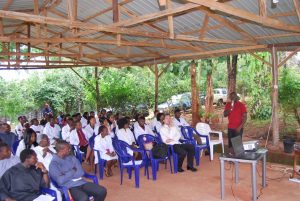 Building on this, locally, Father Anselm explained how Communitalism is at the very heart of various university partnerships that are currently being shaped by Pax Herbals and OFIRDI, in Edo State and beyond. The most prominent example to date is a new Masters Studies Program for Transformation in Africa at the University of Ibadan in Nigeria, which has been approved and will start early 2018.
Building on this, locally, Father Anselm explained how Communitalism is at the very heart of various university partnerships that are currently being shaped by Pax Herbals and OFIRDI, in Edo State and beyond. The most prominent example to date is a new Masters Studies Program for Transformation in Africa at the University of Ibadan in Nigeria, which has been approved and will start early 2018.
